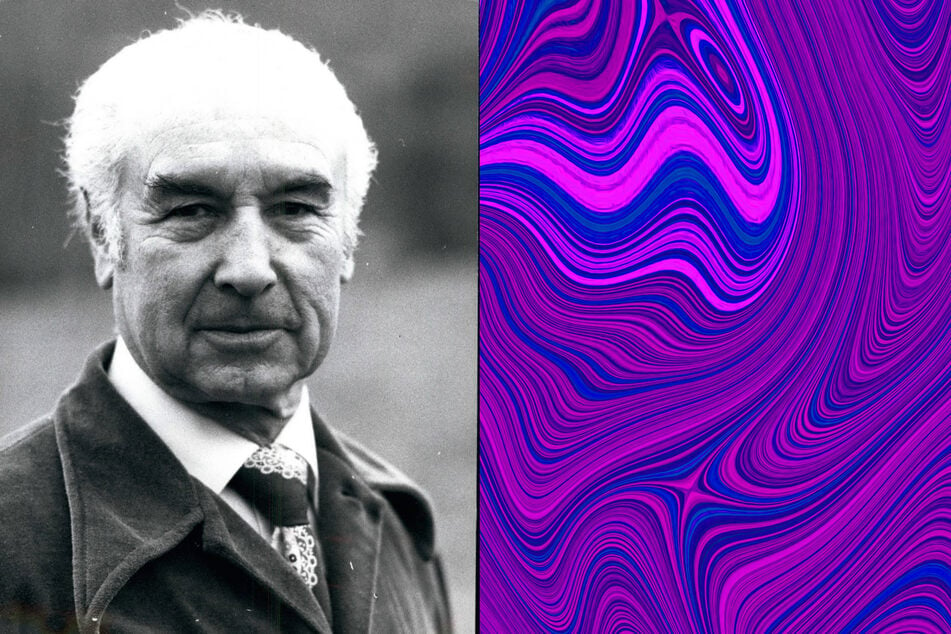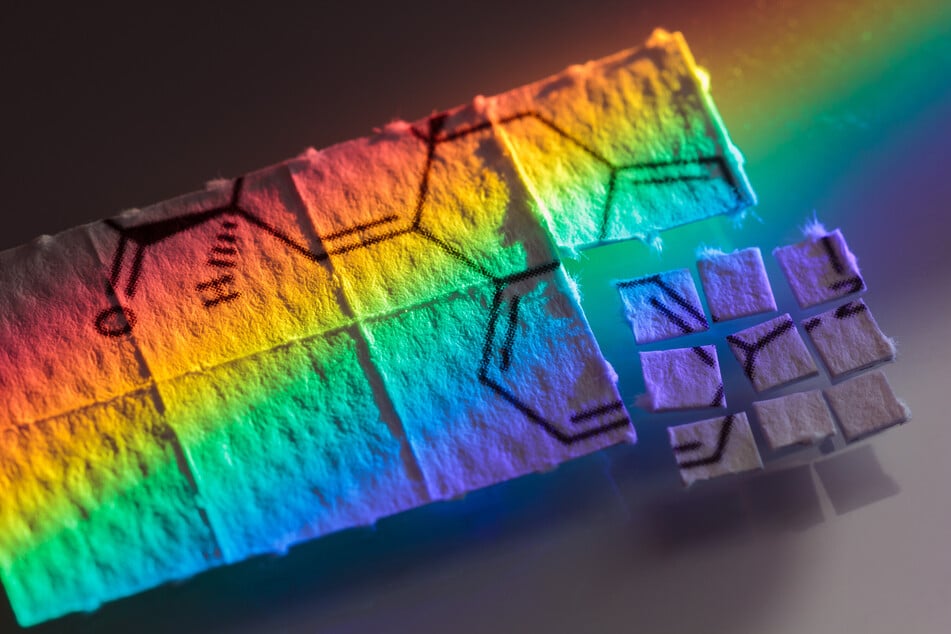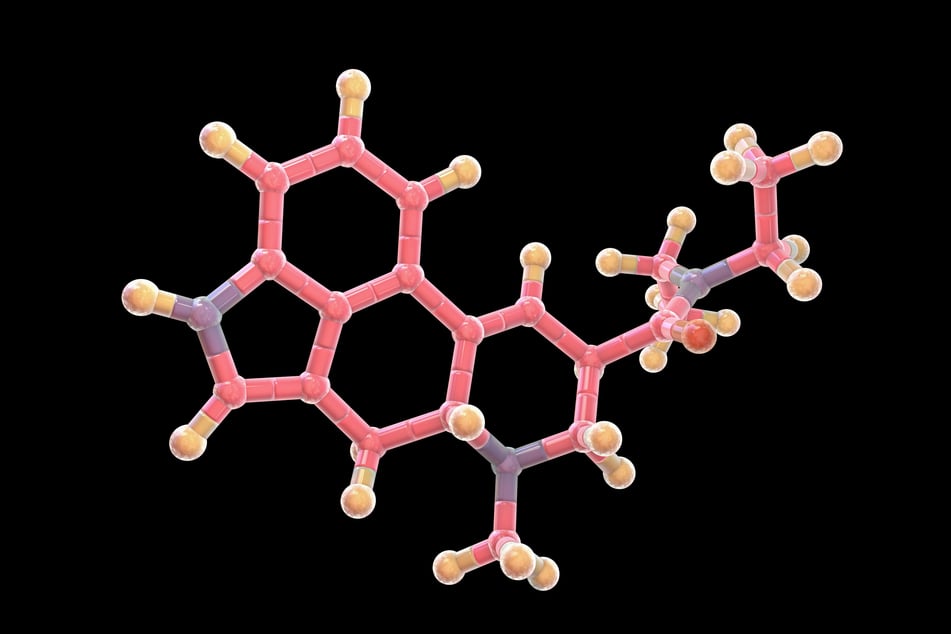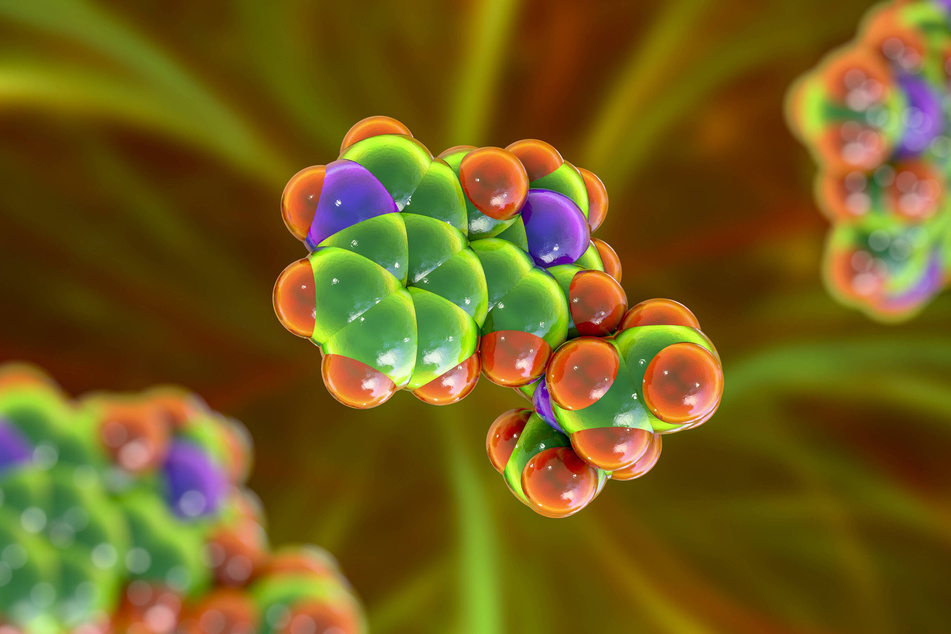"Psychedelic revolution": 80 years on from the discovery of LSD
Basel, Switzerland - Albert Hofmann, the Swiss chemist who discovered LSD 80 years ago, described his first and accidental trip as a "wonderful experience."

Hofmann was working in his lab in 1943, trying to find a way to stabilize circulation in the body. He creates lysergic acid diethylamide – now commonly known as LSD – with an acid he has extracted from the ergot fungus.
On April 16, after not making much progress, the chemist accidentally ingests the substance and begins to notice changes in his consciousness.
Hofmann later reports: "Whatever I imagined was pictorially before me, deeply gratifying." But when he repeats the experiment on April 19, he takes too high a dose and has a bad trip. His neighbor suddenly appears before him as a mean witch and furniture morphs into terrifying shapes.
Hofmann remained convinced of the drug's healing potential when dosed correctly.
His employer, Sandoz Laboratories in the Swiss city of Basel, turned the substance into a drug used for psychotherapy, to treat alcohol addiction and fight depression.
When hippies in the 60s began touting LSD trips as an escape from everyday life, the drug quickly saw a downfall, however. Horror stories of murder and suicide on LSD trips dominated the headlines.
At the end of the decade, LSD was banned, first in the United States and then worldwide.
Eighty years after its discovery, people are still wondering whether LSD really is a miracle drug.
LSD experiences scientific revival

LSD is now seeing a scientific revival, with Basel in Switzerland having become a leading global hub for academic research on LSD. This is only fitting given that Hofmann's first LSD trip took place in a lab in the city.
Researchers from Basel and the US company MindMed recently presented a joint study on the use of LSD for depression.
The researchers found that two moderate to high doses of the psychedelic drug could significantly reduce symptoms in moderate to severe depression, from two weeks to three months after the second dose, said Felix Müller, head of the clinical research area for substance-assisted therapy at the University of Basel.
It is among a number of new studies showing that LSD may be good for your brain.
Müller already showed in 2022 that two doses of LSD can provide lasting relief from anxiety.
By the end of 2022, 61 patients had participated in the depression study. Data on long-term efficacy was not available yet, and the study has not yet been independently peer-reviewed and published.
Another study on LSD's effects on cluster headaches, which consist of excruciating head pain, is still ongoing.
Psychiatry sees "psychedelic revolution"

In 2020, the scientific journal Cell wrote about what it termed a "psychedelic revolution" in psychiatry, with more and more research focusing on hallucinogens such as psilocybin, the active ingredient in magic mushrooms, or LSD, which can cause cognitive changes.
World-renowned universities such as Johns Hopkins in the US and London's Imperial College have set up centers for psychedelics research.
At the opening of Imperial's center in 2019, Robin Carhart-Harris, who is heading it up, called the field "one of the most exciting areas of medical science."
Müller, the researcher from Basel, spoke to dpa about advantages of hallucinogenics as a treatment for mental illnesses.
"Psychotropic drugs tend to treat symptoms. They have to be taken every day and when you stop taking them, the illness often returns. Hallucinogens function more like psychotherapy," he said.
After taking LSD, most people report improved perceptions of both the external world and their emotions, Müller said.
The downside is that the treatment can be very confronting, causing some patients to feel mentally drained, according to the researcher.
"It's often the case that you have to deal with difficult parts of your own psyche, that fears come up, for example," said Müller.
LSD may have valuable medical applications despite negative stigma

Research into psilocybin is more developed than that into LSD, presumably because the hallucinogen has less stigma attached to it, Müller explained. Studies suggest however, that there is practically no difference in effect between the two.
"LSD works at much smaller doses, though," he added, pointing out that 200 micrograms of the drug are enough for a change in perception of 9 to 14 hours.
With psilocybin, a dose of up to 30 milligrams are usually given, with the effects lasting four to seven hours. Those who have taken both drugs tend to report that the effect of LSD lasts much longer, meaning it may offer more opportunities from a therapeutic perspective, according to Müller.
Hofmann, who died in 2008 at the age of 102, lamented the abuse of LSD as a party drug in his book LSD – My Problem Child.
"It gave me open eyes and inner sensitivity to the wonder of creation, and for that I am grateful to my fate," the researcher said on his 100th birthday.
Unlike heroin or cocaine, hallucinogens are not addictive and are physically harmless, according to Müller, but ever since the media began reporting about violent excesses under the influence of LSD, the drug has had a bad reputation. This seriously hindered research opportunities, the Swiss researcher says.
Today's hype about hallucinogens must be treated with caution, however, Müller warns. "They are considered a miracle drug by some. You have to be careful that it doesn't tip over into glorification."
According to Müller, two US pharmaceutical companies are working on psilocybin and LSD-based medication, but he estimates that it will take years before they are ready for the market.
Cover photo: 123RF/yurok
